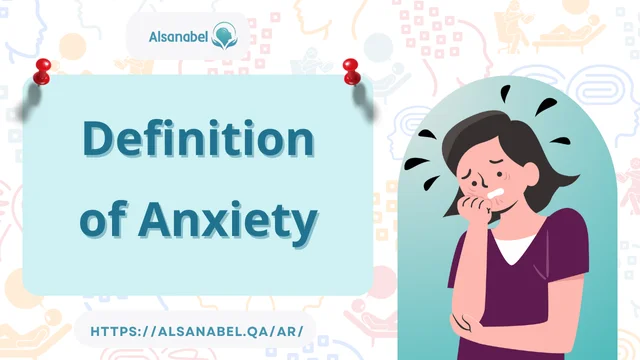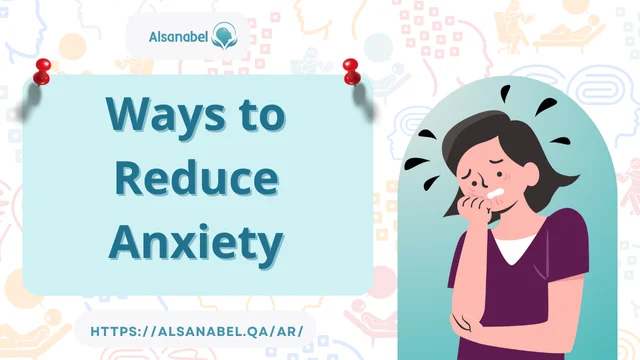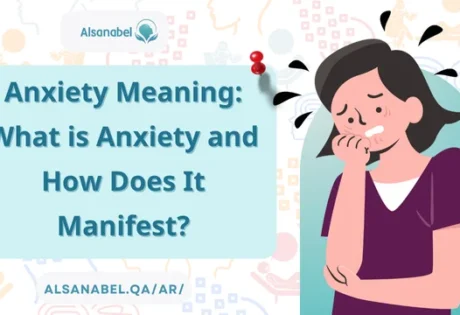
Anxiety is a natural emotional response to stress, characterized by feelings of worry, fear, and unease. While everyone experiences occasional anxiety, such as before an important event, chronic anxiety can be debilitating. When anxiety becomes overwhelming and persistent, it may indicate an anxiety disorder that requires professional attention. In this article, we will explore the definition of anxiety, its causes, symptoms, and effective anxiety treatment in Qatar.
Definition of Anxiety
What is anxiety? Anxiety is a feeling of fear or apprehension about future events or situations that are perceived as stressful or threatening. It often triggers a “fight-or-flight” response in the body, leading to increased heart rate, sweating, and muscle tension. While anxiety can be beneficial in dangerous situations by preparing the body to respond, chronic anxiety can interfere with daily life and become a mental health disorder.

What Causes Anxiety?
What causes anxiety? There is no single cause of anxiety, but rather a combination of genetic, environmental, and psychological factors. Some common causes include:
- Stressful life events: Situations such as job loss, family problems, or financial difficulties can trigger anxiety.
- Genetics: People with a family history of anxiety disorders may be more likely to develop anxiety.
- Trauma: Past traumatic experiences, such as accidents or abuse, can lead to anxiety disorders, especially if untreated.
- Personality traits: Some individuals are more prone to anxiety due to their temperament or personality traits, such as perfectionism or sensitivity to stress.
- Medical conditions: Certain health issues, like thyroid problems or heart disease, can cause symptoms of anxiety.
Understanding the root cause of your anxiety is essential for finding effective ways to manage it.
Signs of Anxiety
The signs of anxiety vary from person to person, but there are common physical, emotional, and behavioral symptoms. These include:
- Physical symptoms: Racing heartbeat, shortness of breath, sweating, trembling, fatigue, dizziness, or muscle tension.
- Emotional symptoms: Constant worry, fear of the worst, irritability, or feeling overwhelmed.
- Behavioral symptoms: Avoiding situations or people that trigger anxiety, difficulty concentrating, and compulsive behaviors like checking things repeatedly.
If these symptoms persist and interfere with your daily activities, it may indicate an anxiety disorder, such as generalized anxiety disorder (GAD), panic disorder, or social anxiety disorder.
How to Treat Anxiety
How to treat anxiety depends on the severity and underlying causes. Several treatment options are available, and many people benefit from a combination of therapies at Al Sanabel Specialized Psychiatric Center In Qatar. Here are some of the most effective treatments:
1. Cognitive Behavioral Therapy (CBT)
CBT is one of the most widely used therapies for anxiety disorders. It focuses on identifying and changing negative thought patterns that fuel anxiety. By learning how to challenge irrational fears and develop healthier coping mechanisms, individuals can reduce their anxiety over time.
2. Medication
In some cases, medication may be necessary to manage severe anxiety symptoms. Antidepressants, anti-anxiety medications, and beta-blockers can help control the physical and emotional aspects of anxiety. However, these medications should be taken under medical supervision and are often used in conjunction with therapy.
3. Mindfulness and Relaxation Techniques
Mindfulness-based therapies and relaxation techniques, such as deep breathing, meditation, and progressive muscle relaxation, can help calm the mind and body during moments of anxiety. Practicing these techniques regularly can also prevent anxiety from escalating.
4. Lifestyle Changes
Regular physical activity, adequate sleep, and a balanced diet can significantly reduce anxiety. Exercise releases endorphins, which help improve mood, while sleep and proper nutrition support mental and physical well-being.
5. Anxiety Treatment in Qatar
For those seeking anxiety treatment in Qatar, there are various mental health services available, including therapy and counseling. Mental health professionals in Qatar like Dr. Sanabel Al Akras can provide individualized treatment plans tailored to each person’s unique needs. Whether it’s therapy, medication, or a combination of both, getting professional support is key to managing anxiety effectively.
Ways to Reduce Anxiety
If you’re dealing with chronic anxiety, there are practical strategies that can help reduce symptoms:

- Practice relaxation techniques: Regularly practicing mindfulness or meditation can help calm your mind and body during stressful situations.
- Limit caffeine and alcohol: These substances can exacerbate anxiety and make it harder to relax.
- Stay physically active: Exercise is a powerful tool for reducing stress and anxiety. Even a short walk or yoga session can improve your mood.
- Connect with others: Talking to a friend or family member about your worries can provide emotional support and reduce feelings of isolation.
- Set realistic goals: Break tasks into smaller, manageable steps to avoid feeling overwhelmed.
By incorporating these habits into your daily routine, you can manage your anxiety and improve your overall well-being.
What is Anxiety FAQs
1. How is anxiety defined?
Anxiety is defined as a feeling of worry, nervousness, or unease about something with an uncertain outcome. While it is a normal response to stress, chronic anxiety can develop into an anxiety disorder.
2. What are the common physical symptoms of anxiety?
Common physical symptoms of anxiety include a racing heart, sweating, trembling, muscle tension, dizziness, shortness of breath, and fatigue.
3. How does anxiety affect daily life?
Anxiety can affect daily life by making it difficult to focus, disrupting sleep, causing avoidance of certain activities or situations, and increasing irritability. If left untreated, anxiety can impair a person’s ability to function effectively at work, school, and in social settings.
4. Is anxiety a normal response to stress?
Yes, anxiety is a normal response to stress. However, when anxiety becomes chronic and interferes with daily activities, it may be classified as an anxiety disorder.
5. Can anxiety be managed without medication?
Yes, anxiety can be managed without medication through cognitive behavioral therapy (CBT), mindfulness techniques, lifestyle changes, and regular physical activity. However, in some cases, medication may be necessary for more severe symptoms.
Anxiety is a common emotional response that can range from mild to severe. Understanding the causes and symptoms is the first step in managing it. With effective anxiety treatment in Qatar and lifestyle changes, individuals can learn to manage their anxiety and improve their quality of life. Whether through therapy, medication, or relaxation techniques, it’s important to seek help and adopt strategies that work best for you.

